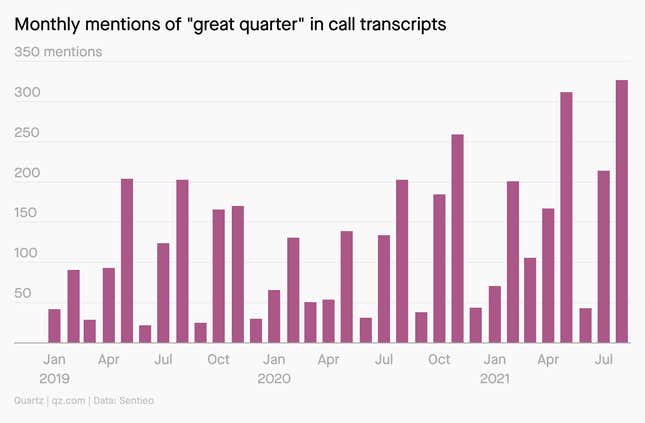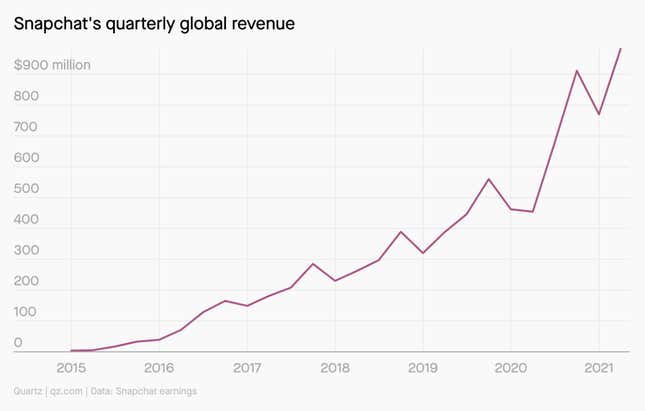Good morning, Quartz readers!
Was this newsletter forwarded to you? Sign up here. Forward to the friend who had a great quarter.
Here’s what you need to know
A group of soldiers has taken over the government in Guinea. The head of special forces says military officers have detained the president and dissolved the constitution.
Google reportedly locked Afghan government email accounts. The move prevents the Taliban from accessing information about former government officials and their allies, just as the Taliban entered the Panjshir Valley, the only part of Afghanistan that it hadn’t conquered.
Thailand’s prime minister survived (another) no confidence vote. Despite protests that the government had bungled its response to the pandemic, Prayut Chan-o-cha and five cabinet ministers held onto power.
Australia’s economy is fine despite China’s import bans, thanks. After the restrictions earlier this year, Australia has quickly found new trading partners, treasurer Josh Frydenberg is expected to announce Monday.
In US states where schools have opened, Covid cases are rising. Children in southern states have experienced a surge in infections, a sign of possible things to come as the rest of the country’s students go back to school this month.
US ports are likely to be snarled into next year. American maritime ports are log-jammed as retailers and manufacturers aim to replenish inventories, adding to a series of blockages in supply chains.
England will implement vaccine passports this month. Nightclubs and other indoor venues will be required to verify that customers have been fully vaccinated.
What to watch for
El Salvador’s big bitcoin bang. The Central American country’s bitcoin wallet, known as “chivo,” is set to launch on Sept. 7, which would make El Salvador the first nation in the world to make bitcoin one of its national currencies.
The move by president Nayib Bukele, who is hoping to modernize the country’s financial system and attract entrepreneurs, obliges businesses to accept the US dollar (El Salvador’s other national currency) as well as the original crypto token. Economists, meanwhile, worry that the effort could expose regular people to a rollercoaster of volatility and destabilize the economy.
Congrats on a great quarter, everyone
The US stock market just keeps setting records, and executives are celebrating booming sales: The words “great quarter” and their synonyms were mentioned during earnings calls a record 327 times in August, according to call transcript data compiled by Sentieo. “Congratulations” also had a strong showing.

Companies in healthcare, communications services, consumer staples, and information technology led reports of revenue exceeding estimates during the second quarter. In all four of those sectors, more than 90% of the firms blew away sales expectations.
The snap back

When it launched in 2011, Snapchat was the epitome of cool. It rode an early wave of growth to an ebullient 2017 stock listing, which valued Snapchat at $24 billion. But in 2018, Snapchat’s growth suddenly stalled. Pundits declared the app dead.
Cut to 2019, and a miracle: Snapchat started growing again, thanks to new users outside the US and the pandemic.
✦ We go deep on Snapchat in our most recent issue of The Company, exclusive to Quartz members. Sign up today and use code QZEMAIL40 to get 40%.
What we’re reading
🏘️ These are the US counties least susceptible to the effects of climate change. Flooding, fire, extreme heat? Not here.
🇨🇳 China is trying to convince its citizens to support a partnership with the Taliban. Response has so far been mixed.
✌️Quitting your job is political now. But will individual white-collar workers quitting their jobs add up to a bigger paradigm shift?
🙅♀️ A “rape demonstration” in Ivory Coast is getting some serious backlash. It’s putting the culture around victim blaming under the microscope.
📈 Why bitcoin and ethereum prices just keep rising. We’ve got a few theories, including bullish moves from Facebook, El Salvador, and Elon Musk.
Surprising discoveries
Scotland’s beavers are back—and so is farmers’ ire. Beavers have bounced back from near extinction, but their habit of felling trees and making dams are making them unpopular neighbors.
Dutch cities are barring investors from buying cheap property. A law set to take effect Jan. 1 would help would-be homeowners looking to find a place in the tight urban housing market.
Great blue herons can have a rodent, as a treat. They usually eat fish, but turns out they’re not that picky.
US poison control centers are seeing lots of overdoses of a horse dewormer. The National Poison Data System saw a 245% jump in overdoses of ivermectin, which some people believe can treat Covid-19 despite a lack of data, between July and August.
A NYC home made of shipping containers sells for $5 million. The “green” building is made of 21 shipping containers, and, yes, it’s in Brooklyn.
Our best wishes for a productive day. Send any news, comments, shipping container homes, and rat snacks to hi@qz.com. Get the most out of Quartz by downloading our iOS app and becoming a member. Today’s Daily Brief was brought to you by Alexandra Ossola and John Detrixhe.
